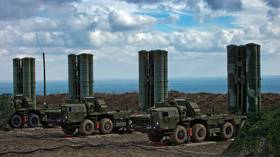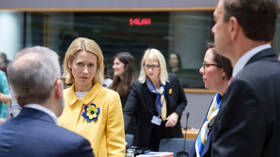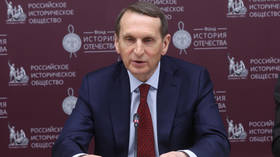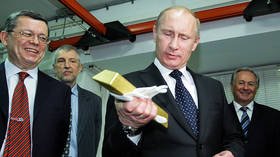UK becomes first country to approve Pfizer-BioNTech vaccine against Covid-19
Britain has become the first nation in the world to approve the Pfizer-BioNTech vaccine against the coronavirus for widespread use. The drug is expected to be rolled out as early as next week.
“The Government has today accepted the recommendation from the independent Medicines and Healthcare products Regulatory Agency (MHRA) to approve Pfizer-BioNTech’s Covid-19 vaccine for use,” a statement by the UK authorities read.
With Britain so far registering more than 1.6 million coronavirus cases and over 59,000 deaths, MHRA has moved at record speed to grant emergency authorisation to the vaccine in just a week’s time. The agency only received the final data from Pfizer-BioNTech on November 23.
The vaccine, which, according to the developers, offers 95 percent protection from the virus, but has to be stored at minus 70 degrees Celsius, will also see a swift introduction in the UK.
Also on rt.com Pfizer and BioNTech apply to European regulator to allow emergency use of their vaccineHealth Secretary Matt Hancock said vaccination in the country will begin next week, adding “it is very good news.” Vulnerable groups, including residents of care homes, which have been hit the hardest during the pandemic, are expected to get the shots first.
The UK has ordered 40 million doses of the drug, jointly developed by the US and German biotech firms. It’ll be enough to vaccinate 20 million people, as two injections are required.
Britain’s approval is “a historic moment in the fight against Covid-19,” said Pfizer CEO Albert Bourla, adding that “further authorizations and approvals” were expected in the EU and elsewhere.
Also on rt.com London asks regulator to assess Oxford/AstraZeneca Covid-19 vaccine amid concerns over trial’s robustnessThe Pfizer-BioNTech vaccine received approval in the United Kingdom ahead of the UK’s own drug, produced by AstraZeneca and the University of Oxford. The developers said their vaccine was 90 percent effective if administered as a half dose followed by a full dose, but the result was based on data from just a few thousand people, in line with the regimen of late-stage trials in the UK. Global testing, during which a full dose was administered twice to the subjects, showed its efficacy rate to be just 62 percent. That’s a much lower effectiveness figure than that of Pfizer-BioNTech’s drug, as well as of the vaccines by Moderna in the US and Sputnik V in Russia, the latter of which has an efficacy of more than 95 percent.
Think your friends would be interested? Share this story!














